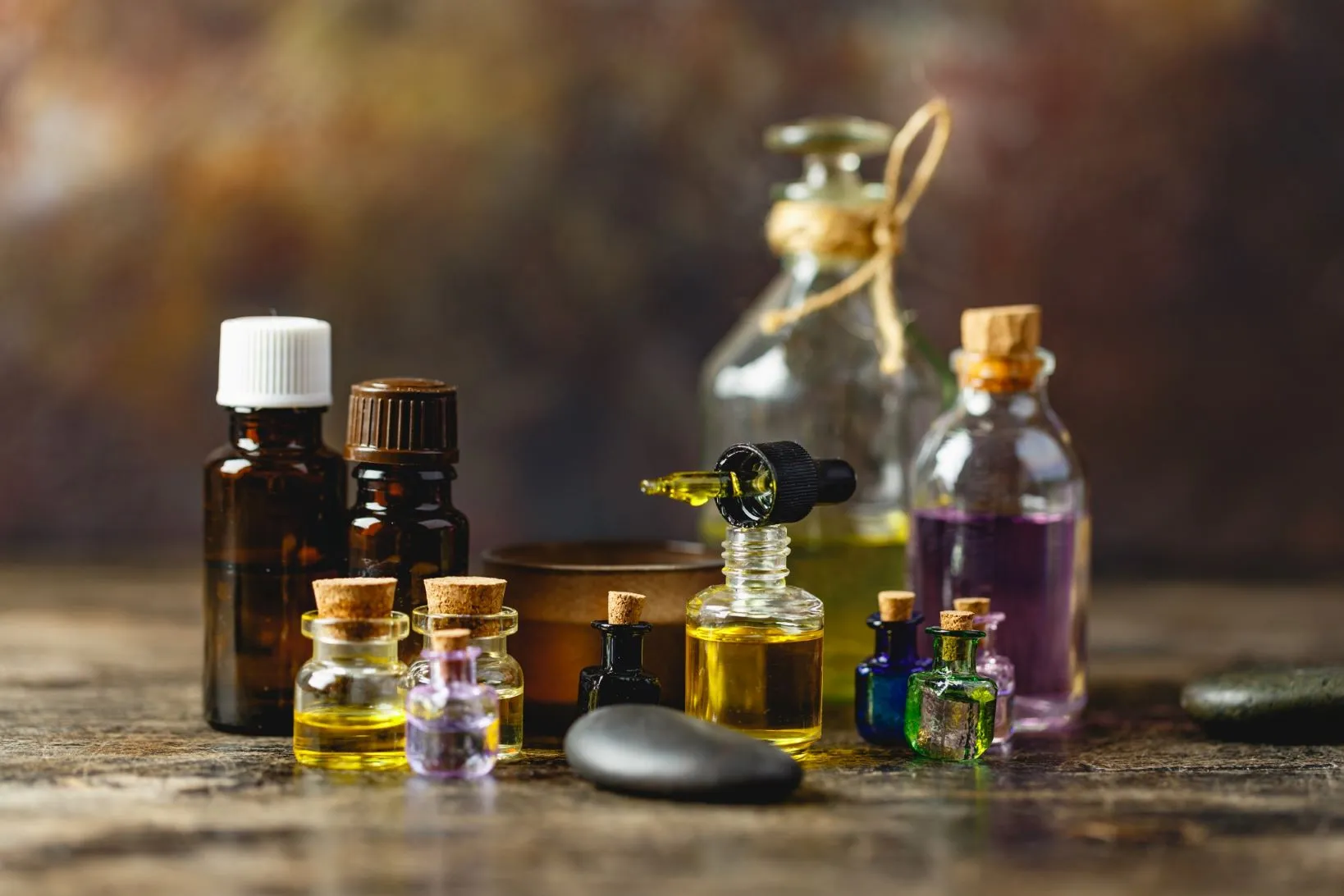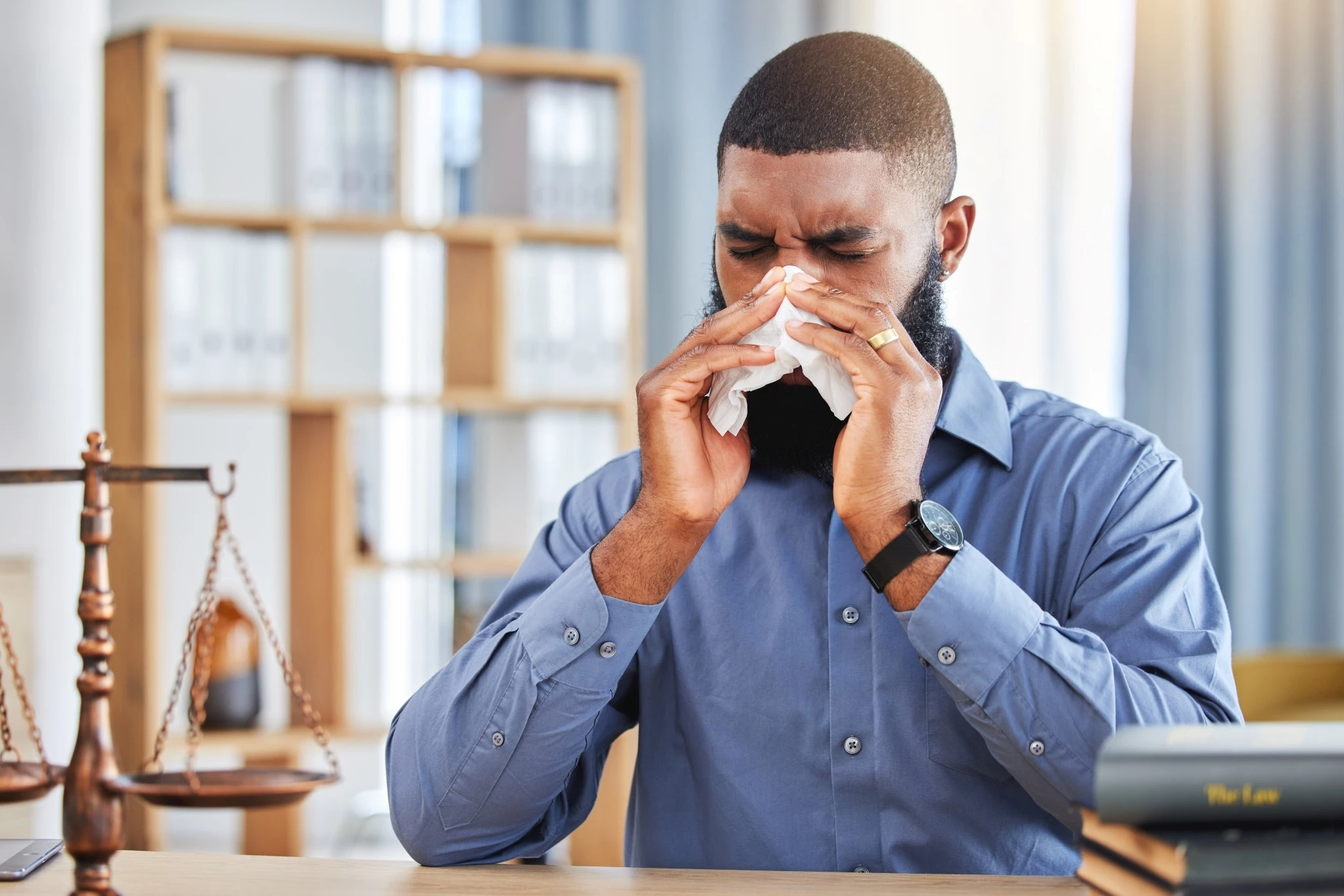Sinus Headache Symptoms: Key Takeaways
- Identify sinus headache symptoms like pain behind the eyes, facial tenderness, and toothache.
- Use heat therapy and saline sprays for quick relief from sinus pressure.
- Hydration is key to thinning mucus and managing sinus headaches.
- Essential oils and herbal teas can serve as natural remedies for sinus discomfort.
- Recognize when it’s time to consult a medical professional for your sinus headaches.
Embark on a Journey to Natural Sinus Headache Relief
When your head throbs, and your face feels like it’s being squeezed in a vice, you know all too well the misery of a sinus headache. But fear not, for nature offers a bounty of remedies that can bring soothing relief. Together, let’s explore how to calm the storm in your sinuses and find comfort the natural way.
Discover Quick-Acting Solutions for Sinus Pressure
Apply warm compresses to ease facial pain.
Breathe in steam to help clear nasal passages.
- Use a saline nasal spray to moisten and clear sinuses.
Before we dive deeper into remedies, let’s make sure we understand the symptoms of a sinus headache, because knowing exactly what we’re dealing with is half the battle.
Understand the Importance of Identifying Sinus Headache Symptoms
Sinus headaches can be sneaky. They often mimic other types of headaches, but there are telltale signs that what you’re experiencing is indeed sinus-related. Recognizing these signs can lead you to the right natural treatments that will provide the relief you seek.

Identifying Sinus Headache Symptoms
It starts with pressure – that feeling as if someone is pressing firmly on your forehead, around your nose, or on your cheeks. This is the hallmark of a sinus headache. But it’s not just about pressure; there are other symptoms to watch out for:
Recognize the Signs of a Sinus Headache
The discomfort from sinus headaches can range from annoying to downright debilitating. Here’s what to look for:
- A deep and constant pain in your cheekbones, forehead, or the bridge of your nose.
- The pain typically intensifies with sudden head movements or straining.
- You might feel a fullness in your ears and have a decreased sense of taste or smell.
Moreover, sinus headaches often come hand-in-hand with other sinusitis symptoms, such as nasal discharge, a feeling of fullness in the ears, and fever.
Differentiating Between Sinus Headaches and Other Types
Now, it’s crucial to differentiate a sinus headache from migraines or tension headaches, which require different approaches. Migraines, for example, might include nausea and visual disturbances, while tension headaches often feel like a tight band around your head. If your headache is accompanied by a thick, discolored nasal discharge, and a fever, it’s likely sinus-related.
Immediate Natural Remedies
Let’s talk about some immediate natural remedies that you can use right now to alleviate that sinus headache.
Soothe Pain with Heat Therapy
Applying heat to your face can work wonders. It helps to:
- Reduce sinus congestion by loosening mucus.
- Decrease pain by relaxing the muscles around your sinuses.
- Increase blood flow to the area, which aids in healing.
Simply take a warm, damp cloth and place it over your face for a few minutes. Feel the warmth penetrate your skin, ease the pressure, and reduce the pain. It’s a simple yet effective way to find some comfort.
Alleviate Pressure Using Saline Sprays
Saline nasal sprays are a godsend for anyone with sinus headaches. They help by:
- Moistening the nasal passages.
- Thinning the mucus, so it drains more easily.
- Reducing the inflammation in your nasal cavities.
You can find saline sprays at most drugstores, or you can make your own by dissolving a teaspoon of salt in a pint of warm, distilled water. Use a clean spray bottle or a neti pot to apply the saline solution. It’s a natural and easy way to clear up those blocked passages.
Remember, these remedies are about giving you a respite from the pain and pressure of sinus headaches. They’re not cures, but they can significantly improve your quality of life while dealing with this condition.
Most importantly, these natural approaches can be used in tandem with other treatments, or on their own, depending on the severity of your symptoms. Because everyone’s body reacts differently, you may find some methods more effective than others. Therefore, it’s worth trying a combination of these remedies to discover what brings you the most relief.
Besides that, staying hydrated and avoiding irritants like smoke and strong perfumes can also help keep your sinuses clear. But let’s not stop there. In the next section, we’ll explore more long-term strategies and delve into the world of herbal helpers for even greater relief.

Long-term Relief Strategies
While quick fixes are great for immediate relief, incorporating long-term strategies into your daily routine can help manage and prevent sinus headaches over time. Let’s look at some sustainable practices that can keep your sinuses happy and healthy.
Stay Hydrated for Effective Mucus Management
Drinking plenty of fluids is crucial for keeping your mucus thin and manageable. When your body is well-hydrated, mucus stays loose and is less likely to clog your sinuses, leading to headaches. Aim for at least 8 glasses of water a day, and remember, warm liquids can be especially soothing for inflamed sinuses.
Strengthen Your Immune System with a Balanced Diet
Eating a diet rich in fruits, vegetables, and whole grains can boost your immune system and help your body fend off infections that might lead to sinus headaches. Foods high in vitamin C, such as oranges and strawberries, and omega-3 fatty acids, found in fish like salmon, can reduce inflammation and improve sinus health.
In addition to these nutrients, consider adding garlic and ginger to your meals. Both have natural anti-inflammatory and decongestant properties. They’re not just for flavor – they’re your allies in the fight against sinus headaches.
Moreover, it’s wise to avoid foods that trigger allergies or sensitivities, as these can exacerbate sinus issues. Keep a food diary to track what you eat and how it affects your sinuses; this can help you pinpoint and eliminate problematic foods from your diet.
Herbal Helpers for Sinus Relief
The plant kingdom is full of herbal heroes that can come to your rescue during a sinus headache bout. Herbs have been used for centuries to alleviate various ailments, and sinus discomfort is no exception.
Peppermint, for instance, is known for its menthol content, which can help clear the sinuses and act as a natural decongestant. You can use peppermint in the form of tea or essential oil.
Eucalyptus is another herb that’s famous for its respiratory benefits. Its strong scent is not just refreshing – it can help open up your nasal passages. A few drops of eucalyptus oil in a bowl of hot water can create a therapeutic steam inhalation.
Explore Essential Oils for Sinus Comfort
Essential oils are concentrated plant essences that can be used for a variety of sinus headache symptoms. In addition to peppermint and eucalyptus, consider these oils:
- Lavender oil for its calming and anti-inflammatory properties.
- Tea tree oil for its antibacterial and antiviral effects.
- Rosemary oil for its ability to reduce headache pain.
Use these oils in a diffuser, or dilute them with a carrier oil like coconut or almond oil for topical application. Remember, essential oils are potent, so a little goes a long way.

The Healing Power of Herbal Teas
Herbal teas aren’t just comforting beverages – they’re packed with compounds that can aid in sinus health. Ginger tea, with its spicy kick, can help reduce inflammation and relieve sinus pressure. Chamomile tea is another excellent choice for its anti-inflammatory and antioxidant properties, which can soothe irritated sinus passages.
Integrating Massage and Acupressure
Massage and acupressure are hands-on techniques that can provide significant relief from sinus headaches. By applying pressure to specific points on your face and head, you can stimulate blood flow and ease the tension that contributes to sinus pain.
- Gently massage your forehead, cheeks, and the bridge of your nose with circular motions.
- Use your fingertips to apply pressure to the sides of your nostrils and the inner corners of your eyes.
- Repeat these movements several times throughout the day, especially when you feel a headache coming on.These simple techniques can be done anywhere and require no special tools – just the healing power of your own hands.
Self-Massage Techniques for Sinus Relief
To perform a self-massage for sinus relief, start by rubbing your hands together to warm them up. Then, place your fingers on either side of your nose and apply gentle pressure. Move your fingers in a circular motion, gradually working your way up to your forehead and down to your cheekbones. This can help break up congestion and promote drainage.
Acupressure Points to Reduce Headache Pain
Acupressure is based on the concept of life energy that flows through “meridians” in the body. For sinus headaches, the following points can be particularly helpful:
- The “biting point” on the pad of your thumb, which can be stimulated by pinching it with the index finger and thumb of your opposite hand.
- The “welcome fragrance” points on either side of your nostrils, just below the cheekbones, which can be massaged gently.
- The “third eye” point, located between your eyebrows, where the bridge of your nose meets your forehead.
Applying pressure to these points for a few minutes at a time can help alleviate sinus pressure and headache pain.
Environmental Adjustments for Sinus Health
Your environment plays a crucial role in managing sinus health. Dry air can irritate your sinuses, while polluted or smoky environments can trigger headaches. Here are some ways to create a sinus-friendly environment:
Modify Your Living Space to Support Sinus Wellness
Keep your living space clean and free of allergens. Regularly replace air filters, vacuum and dust often, and consider using an air purifier. Additionally, avoid strong fragrances and chemicals that can irritate your sinuses.
Optimize Humidity Levels for Sinus Comfort
Maintaining the right humidity level in your home can make a big difference. Too much humidity can promote mold growth, while too little can dry out your sinuses. Aim for a humidity level between 30-50%. A hygrometer can help you monitor the humidity in your home, and a humidifier or dehumidifier can adjust it as needed.

When to Seek Professional Medical Advice
While natural remedies can be incredibly effective, they have their limitations. It’s important to know when to seek the help of a healthcare professional.
Understanding the Limits of Home Remedies
Home remedies can provide relief, but they are not a substitute for professional medical advice, especially if your symptoms are severe, persistent, or worsening. If you experience frequent sinus headaches or if your headaches are accompanied by a high fever, it’s time to see a doctor. For more information, explore home remedies for sinus headaches that may provide temporary relief.
Signs That Indicate the Need for a Doctor’s Visit
Seek medical attention if you experience any of the following:
- Severe sinus pain that does not improve with natural remedies.
- Signs of a sinus infection, such as green or yellow nasal discharge.
- Headaches that become more frequent or severe over time.
- Any new or unusual symptoms that accompany your sinus headaches.
Remember, your health is paramount, and while nature offers many gifts for relief, there are times when a professional’s guidance is necessary to ensure your well-being.
Knowing when to seek professional help is as important as any remedy. After all, some situations require more than a natural touch; they demand medical expertise. So, let’s explore when it’s time to step beyond home remedies and consult with a healthcare professional.
When to Seek Professional Medical Advice
Understanding the Limits of Home Remedies
Home remedies can be wonderful. They’re natural, accessible, and often provide the relief we’re after. But they’re not cure-alls. If you’ve been trying to manage your sinus headaches with natural remedies and haven’t seen improvement, or if symptoms have worsened, it’s time to acknowledge their limits. Persistent or severe symptoms can be a sign that something more serious is at play, and that’s when it’s crucial to turn to a healthcare professional.
Signs That Indicate the Need for a Doctor’s Visit
Here are some red flags that suggest your sinus headaches need a doctor’s attention:
- Intense pain that doesn’t respond to natural treatments.
- Headaches that are becoming more frequent or more severe.
- Additional symptoms like high fever, vision problems, or persistent nasal discharge, especially if it’s yellow or green.
- Any signs that your sinus issues are affecting other parts of your body, such as your ears or teeth. If you’re experiencing any of these, don’t hesitate to seek medical advice. A healthcare professional can provide a thorough evaluation, an accurate diagnosis, and a treatment plan tailored to your specific needs.
FAQs

Can Certain Foods Trigger Sinus Headaches?
Yes, certain foods can trigger sinus headaches, especially if you have food allergies or sensitivities. Common culprits include dairy products, gluten, eggs, and some types of nuts. If you suspect that a specific food is triggering your headaches, try eliminating it from your diet for a few weeks to see if your symptoms improve.
How Often Should I Practice Acupressure for Relief?
Acupressure can be practiced daily, especially during a sinus headache. If you’re new to acupressure, start with a few minutes at a time, several times a day, and see how your body responds. You can gradually increase the duration and frequency as needed.
Are Sinus Headaches a Sign of a More Serious Condition?
Sinus headaches themselves are not typically a sign of a more serious condition, but they can be a symptom of chronic sinusitis, which requires medical treatment. If you’re experiencing frequent sinus headaches, it’s important to consult with a healthcare professional to rule out any underlying conditions.
How Can I Tell the Difference Between Allergies and Sinusitis?
Allergies and sinusitis can have similar symptoms, but there are some differences. Allergies are often accompanied by itchy eyes, sneezing, and a runny nose with clear mucus. Sinusitis, on the other hand, is more likely to cause facial pain, a reduced sense of smell, and thicker nasal discharge. If you’re unsure, a visit to an allergist or ENT specialist can provide clarity.
Is It Safe to Use Essential Oils If I Have Asthma or Allergies?
If you have asthma or allergies, you should be cautious with essential oils as they can trigger reactions in sensitive individuals. Always start with a small amount to see how you react, and consult with a healthcare professional if you’re unsure. Additionally, using a diffuser with a timer can help prevent overexposure to the oils’ aromatic compounds.
In conclusion,
While sinus headaches can be a real pain, there’s a wealth of natural remedies at your disposal that can provide relief. From heat therapy and saline sprays to hydration and herbal teas, the power of nature is on your side. Just remember to be mindful of the signs that indicate a need for professional medical advice. With the right approach, you can breathe easy and keep sinus headaches at bay.



